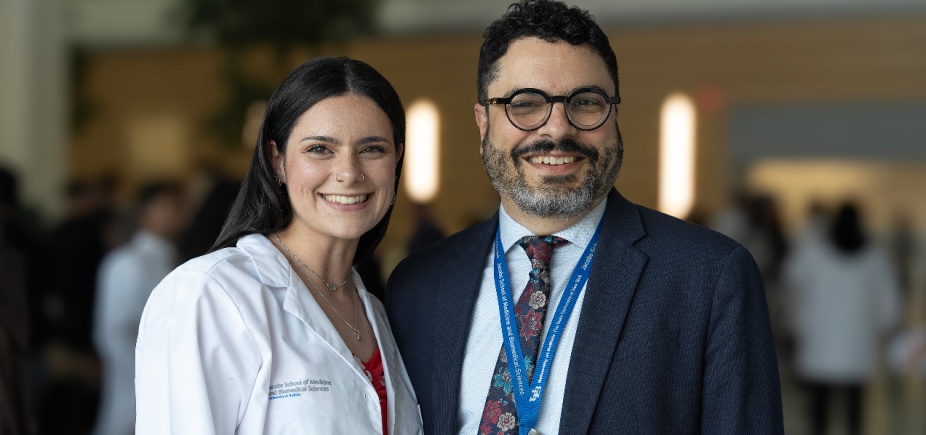Faculty Mentor Development

We believe that mentorship is the cornerstone of academic and professional growth. Our Faculty Mentor Development program is dedicated to empowering faculty to inspire, guide and nurture the next generation of biomedical scientists. Join us in shaping the future through impactful and transformative mentorship.
Mentor Development Series
Fall 2024 Sessions
Building a community of practice on mentoring
Faculty group will meet to host discussions on specific mentorship topics. Sessions will be help via zoom or in person for one hour.
Past Sessions
Difficult conversations, conflict, and feedback – Spring 2024
This session built a framework for having difficult/uncomfortable conversations, including providing effective feedback. It examined how we decide to engage in difficult./uncomfortable conversations and provided strategies and tools for effective communication under challenging circumstances. Specific issues, such as differences in style or culture, appropriate boundaries and managing challenging interactions were discussed.
Building a welcoming and inclusive research group – Spring 2023
This workshop addressed the effect of bias, both explicit and implicit, on our research groups. It provided strategies to ensure that all trainees are set up for success at work, including welcoming diversity and addressing issues such as stereotype threat, micro-aggressions and attributional ambiguity.
Communication and work styles in research groups- Spring 2022
This workshop is designed to explore communication and work style differences. Specifically, we looked at how they influence the way we make decisions and manage conflict. The workshop provided participants with material that helped with decision making of when and how to have a conversation that fosters an inclusive and successful research group.
Resources
For Junior Faculty
Literature & Resources
- Aronson, J., & Inzlicht, M. (2004). The ups and downs of attributional ambiguity. Psychological Science, 15, 829-836.
- Crocker, J., Voelkl, K., Testa, M., & Major, B. (1991). Social stigma: The affective consequences of attributional ambiguity. Journal of Personality and Social Psychology, 60, 218-228.
- Duke, L., & Morin, R. (1992, March). Focusing on Race: Candid Dialogue, Elusive Answers. The Washington Post, p. A35.
- Heilman, M. E., Simon, M. C., & Repper, D. P. (1987). Intentionally favored, unintentionally harmed? Impact of sex-based preferential selection on self-perceptions and self-evaluations. Journal of Applied Psychology, 72(1), 62.
- Major, B., & Crocker, J. (1993). Social stigma: The consequences of attributional ambiguity. In D. M. Mackie & D. L. Hamilton (Eds.), Affect, cognition and stereotyping: Interactive processes in group perception (pp. 345-370). Orlando, FL: Academic Press.
- Yeager, D. S., Purdie-Vaughns, V., Garcia, J., Apfel, N., Brzustoski, P., Master, A., ... & Cohen, G. L. (2014). Breaking the cycle of mistrust: Wise interventions to provide critical feedback across the racial divide. Journal of Experimental Psychology: General, 143(2), 804.